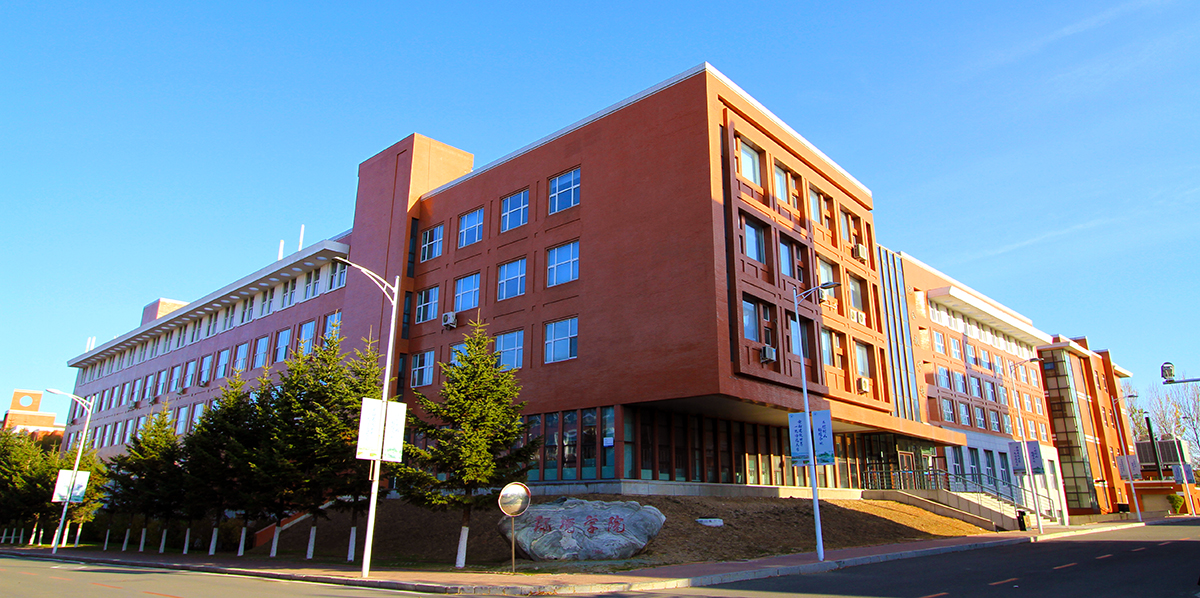
School of Trade Negotiations, SUIBE
上海对外经贸大学贸易谈判学院简称“谈判学院”,创立于2017年10月,是我国首家培养贸易谈判人员的专门机构,其前身WTO研究教育学院成立于2002年5月,是我国最早开展世贸组织研究、教学工作的学术机构之一。2009年11月,学院教授作为中国代表,经过与全球70多个WTO成员的激烈竞争,成功申请到WTO秘书处发起的“世贸组织讲席计划”,成为WTO特聘教授,学院也成为全球19所、中国唯一的世贸组织讲席承担单位。作为我国世贸组织讲席的承担单位,学院已经发展为WTO秘书处全球学术网络的核心层,学院也逐渐成为国际著名WTO学术机构。
学院秉承上海对外经贸大学在WTO领域的传统优势,在整合校内外学术资源的基础上设立了世界贸易组织法硕士点,独立招收世界贸易组织法硕士研究生。学院拥有由WTO秘书处专家设计的、与国际著名院校保持一致的研究生课程体系。
学院目前设有国际经贸规则本科专业、世界贸易组织法硕士专业和国际商务硕士专业(国际经济组织方向),旨在重点培养熟悉党和国家方针政策、了解我国国情、具有全球视野、熟练运用外语、精通国际贸易规则与谈判的专业人才。具体而言,主要为国家培养和输送以下五类人才:(1)中央部委中代表国家参与双边和区域性协议谈判的工作人员;(2)中央部委中代表国家在国际组织中参与多边谈判的工作人员;(3)受聘国际组织为各国提供谈判支持的工作人员;(4)国际争端解决和仲裁人员;(5)非政府组织和涉外律师事务所的法律工作人员。
贸易谈判学院现有近20名专任教师,90%以上具有博士学位。多数教师具有在哈佛大学、乔治城大学、汉堡大学、波恩大学、德国马克斯·普朗克创新与竞争研究所、法国艾克斯-马赛大学、瑞士洛桑大学、意大利都灵大学、新加坡国立大学、新加坡南洋理工大学等留学或访学的经历。多名教师担任世界知识产权组织仲裁员、联合国贸发会议和联合国亚太经社理事会学术协调人、欧洲法律学生联盟(ELSA)模拟法庭辩论赛常任学术委员会委员和评委、商务部经贸政策咨询委员会全球价值链专家、商务部企业知识产权海外维权援助专家、中国服务贸易协会专家委员会副理事长、上海国际贸易知识产权海外维权服务基地咨询顾问等社会职务。
学院坚持国际化办学的理念,与世界贸易组织(WTO)、联合国贸发会议虚拟学院(UNCTAD VI)、联合国亚太经社理事会贸易研究与培训网络(UNESCAP/ARTNeT)等国际组织建立了合作关系,与世界上主要WTO学术机构建立了密切合作关系,为开展师生国际交流创建了良好的平台。学院曾多次选派本院研究生赴WTO秘书处和商务部实习。
学院注重科研机构的构建,建有上海高校智库“国际经贸治理与中国改革开放联合研究中心”、教育部国别和区域研究备案基地“世界贸易组织研究中心”、“21世纪海上丝绸之路研究中心”、“中国-WTO争端解决机制研究中心”等学术研究机构。以这些研究机构为载体,学院集中了世界贸易组织、联合国贸发会议、联合国亚太经社理事会以及国内外知名大学、研究机构以及智库的研究力量,承担了大量的国内外科研项目,为国家相关政府部门提供了大量决策建言,取得了很多重要成果。
在中长期,学院致力于实现“三个成为”:成为最具吸引力的贸易谈判研究机构和智库,成为最具潜力的贸易谈判高端人才培养基地,成为最具活力的贸易谈判沟通交流平台。
在近期,学院重点面向国际经济组织(世界贸易组织、世界银行、国际货币基金组织、联合国贸发会、经济合作与发展组织、世界知识产权组织、亚投行、金砖银行等),探索中英法三语结合、中外高校、国际组织三阶段培养、本硕高度衔接的本科、硕士创新人才培养体系。
通过中外教师合作授课,学院将使学生得以接触国际组织公务员、国际一流学者、国际一流谈判官员以及我国贸易谈判主管官员。同时,学院还将争取中央部委和上海市的支持,承担分享中国贸易谈判经验的涉外援助工作,为其他发展中国家培养相关人才,共同探索多元化发展道路。

上海对外经贸大学贸易谈判学院
School of Trade Negotiations, SUIBE
School of Trade Negotiations of Shanghai University of International Business and Economics (SUIBE) established inOctober 2017。 It is the first specialized institution in China to train trade negotiators。 The predecessorof the institution was the School of WTO Research and Education (SWTO)established in May 2002。 It was one of the earliest academic institutions in China to carry out the WTO research and education。In November 2009, Professor Lei ZHANG applied for the WTO Chairs Programme (WCP) initiated by the WTO Secretariat and successfully obtained the Chair after fierce competition with over 70 members of WTO all over the world。
Prof。 Zhang then became the WTO Chair Holder。 The School also became one of the 19 WTO Chairs around the world and the only one in China。 As the host institute of WTO Chair in China, the School has developed itself to be a core participant in the global academic network of the WTO Secretariat, and has gradually become an internationally renowned academic institution on WTO-related topics。
Adhering to the traditional advantages of SUIBEin the field of WTO researches,the School of Trade Negotiations has established Master Program of WTO Law andindependently enrolls graduate students while integrating academic resources inside and outside the University. The curriculum of the Master Programisdesigned by experts from the WTO Secretariat and in line with the internationally renowned institutions.
The School offers a Bachelor Program of International Economic and Trade Rules, a Master Programs of WTO Law, and undergraduate courses of International Business (International Economic Organization Orientation).It aims to cultivate students who are familiar with China’s domestic policies and national situations and have a good understanding of international regulation in trade and economics. They are asked to speak fluently English or other foreign languages with necessary negotiating skills. Specifically, the following five types of talents are mainly cultivated and delivered who can: (1) participate in the negotiations on bilateral and regional agreements; (2) participate in multilateral negotiations in international organizations; (3) support negotiations in international organizations; (4) deal with international dispute settlement and arbitration; and (5) handle international legal affairs for non-governmental organizations and foreign-related law firms.
The School of Trade Negotiations currently has near 20full-time faculty members, more than 90%of whom are PhD holders and most of whom either have studied abroad or have been a visiting scholar at Harvard University, Georgetown University, Boston University, Universität Hamburg, Universität Bonn, Tokyo University, Max Planck Institute for Innovation and Competition, Aix-Marseille Université, Université de Lausanne, UniversitàdegliStudi di Torino, UNITO, National University of Singapore and Nanyang Technological University (NTU Singapore);many of our faculty members serve either as arbitrator of the World Intellectual Property Organization (WIPO), academic coordinator of United Nations Conference on Trade and Development (UNCTAD) and the United Nations Economic and Social Council for Asia and the Pacific (UNESCAP), the member and jury of the Permanent Academic Committee of the Moot Court Debate Competition of European Law Students' Association (ELSA), the expert on Global Value Chain of the Advisory Committee on Economic and Trade Policy of the Ministry of Commerce, the expert on Overseas Intellectual Property Rights Defence Assistance of Enterprises of the Ministry of Commerce, or consultant of Shanghai International Trade Service Base for Overseas Intellectual Property Rights Protection (SITISC)。
The School of Trade Negotiations adheres to the concept of internationalization, and has established cooperation with WTO, UNCTAD VI, UNESCAP/ARTNeTand a close cooperative relationship with major WTO academic institutions worldwide, in order to create a soundplatform for international exchanges among scholars and students. The School has sent its graduate students to the WTO secretariat and the Ministry of Commerce for internship.
The School attaches great importance to the establishment of scientific research institutions, and has established Shanghai Center for Global Trade and Economic Governance (SC-GTEG), the Shanghai WTO Research Center (by the Ministry of Education Regional and Nationals Studies Research Centers), 21stCentury Marine Silk Road Center (with Shanghai Maritime Court)and China WTO Dispute Settlement Research Center, etc. Based on these research institutions, the School pools research sources from the World Trade Organization (WTO), the United Nations Conference on Trade and Development (UNCTAD), the Economic and Social Commission for Asia and the Pacific (UNESCAP) as well as well-known universities all over the world, research institutions and think tanks from home and abroad.The School has undertaken a large number of scientific research projects at home and abroad, and has contributed to decision-making of relevant government departments with significantachievements.
In the near future, the School commits itself to achieve 'Three Becomes': (1) becoming the most attractive research institutes and think tanks for trade negotiations; (2) becoming the most potential talents cultivation base for high-end trade negotiations; and (3) becoming the most energetic platform for trade negotiations and communications.
In the near future, the school will mainly cooperate with international economic organizations such as WTO, World Bank, IMF, UNCTAD, OECD, WIPO, AIIB, BRICS, etc. It will explore the three-stage training mode, namely: (1) the integration of Chinese, English and French teaching and study; (2) the joint cultivation of talents among Chinese and foreign universities and international organizations; (3) the cultivation of innovative undergraduate, postgraduate talents with a highly adherent education background from undergraduate to postgraduate.
The School will enable students to be civil servants of international organizations, international first-rate scholars, negotiators and Chinese negotiation officers through a cooperative teaching between Chinese and foreign scholars. Meanwhile, the School will actively strive for the support of central government and Shanghai Municipal People's Government, undertake foreign-related technical assistance by sharing China’s experience in trade negotiation, cultivate relevant talents for other developing countries in order to explore the path of diversified development jointly.



发表评论